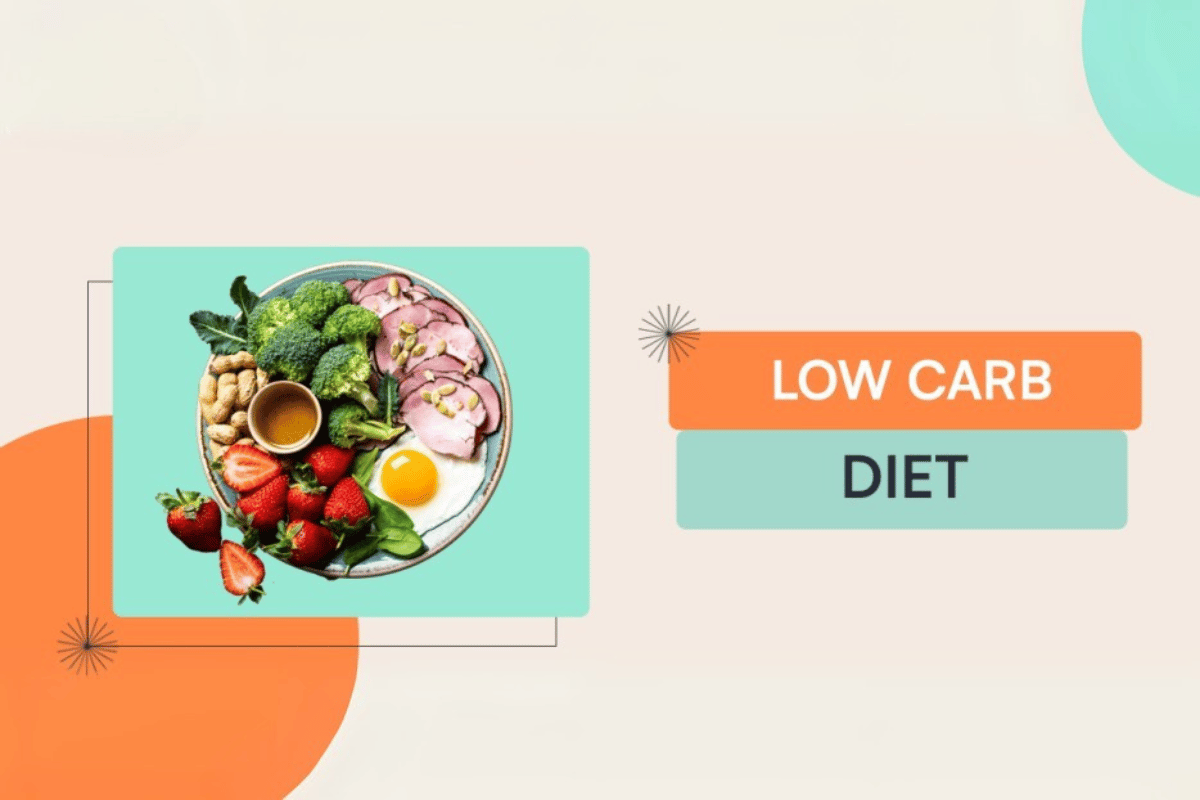Are you tired of trying diet after diet, only to see minimal results? You’re not alone.
Many people are searching for effective ways to shed those stubborn pounds. One approach that’s gaining traction is the low-carb diet. But does it really work for weight loss, or is it just another fad? Imagine finally fitting into your favorite jeans or feeling more confident in your own skin.
The secret might be simpler than you think. In this blog, we’ll dive into how low-carb diets could be the game changer you’ve been looking for. Get ready to uncover the truth behind this popular weight loss strategy and discover if it’s the right fit for you. Keep reading to find out how you can transform your health and achieve your weight loss goals.
Low-carb Diet Basics
Low-carb diets focus on reducing carbohydrate intake. They help some people lose weight by changing how the body uses energy.
These diets limit foods like bread, pasta, and sugar. Instead, they encourage eating more protein and fats.
What Is A Low-carb Diet?
A low-carb diet reduces the amount of carbs eaten daily. Carbs are found in foods like rice, bread, and sweets.
When you eat fewer carbs, your body burns fat for energy. This process can help with weight loss.
Common Low-carb Diet Types
There are different low-carb diets. Each one limits carbs in a different way.
- Keto Diet: Very low in carbs, high in fats.
- Atkins Diet: Starts very low-carb, then adds some back.
- Paleo Diet: Cuts out processed foods and sugars.
- Low-Carb Mediterranean: Focuses on healthy fats and vegetables.

How Low-carb Diets Affect Weight
Low-carb diets limit the amount of carbohydrates eaten daily. This change can impact body weight in different ways.
Many people use low-carb plans to lose weight. Understanding how these diets affect the body helps explain their effects.
Impact On Metabolism
Low-carb diets may increase metabolism slightly. This means the body burns more calories at rest.
Reduced carb intake lowers insulin levels. Lower insulin helps the body use stored fat for energy.
Effect On Appetite And Cravings
Eating fewer carbs can reduce hunger. Many people feel fuller after meals on low-carb diets.
Lower carb intake may cut down cravings for sweets and snacks. This helps control calorie intake.
- More protein and fat keep you full longer
- Stable blood sugar reduces sudden hunger
- Less sugar lowers desire for sugary foods
Role In Fat Burning
Low-carb diets shift the body to burn fat for energy. This process is called ketosis in very low-carb cases.
The body uses fat from food and stored fat. This helps reduce overall fat levels and weight.
- Lower carbs lower insulin, which helps fat loss
- Fat provides steady energy without spikes
- Fat burning increases as carbs drop
Scientific Evidence On Weight Loss
Low-carb diets limit carbohydrate intake to help reduce weight. Many people try them to lose fat quickly. Scientists have studied if these diets really work well.
This section explores what research says about low-carb diets and weight loss. It looks at clinical trials, how they compare to other diets, and long-term results.
Results From Clinical Trials
Clinical trials test low-carb diets on groups of people. Many trials show that low-carb diets can cause weight loss. Participants often lose more weight in the first few months.
Some studies find that low-carb diets reduce appetite. This helps people eat less without feeling hungry. Other trials report improvements in blood sugar and cholesterol.
- Low-carb diets often lead to quick initial weight loss
- They may reduce hunger and calorie intake
- Some trials show better blood sugar control
Comparison With Other Diets
Low-carb diets are compared to low-fat and balanced diets. Many studies find low-carb diets help lose more weight at first. After a year, differences between diets are smaller.
Some people find low-carb diets easier to follow. Others prefer diets with more carbs. The best diet depends on personal preference and lifestyle.
- Low-carb diets often beat low-fat diets in short-term weight loss
- Long-term weight loss is similar across many diet types
- Diet adherence is key to success, regardless of type
Long-term Weight Loss Success
Long-term studies look at weight loss after one year or more. Many people regain some weight after stopping the diet. Low-carb diets do not guarantee permanent weight loss.
Staying on a low-carb diet for years can be hard. Success depends on habits, support, and lifestyle changes. Balance and consistency help keep weight off.
- Weight regain is common after any diet ends
- Long-term low-carb diet adherence is challenging
- Healthy habits support lasting weight loss

Benefits Beyond Weight Loss
Low-carb diets are popular for weight loss. They also offer many health benefits beyond losing pounds.
These diets can help improve your overall well-being in several important ways.
Blood Sugar Control
Eating fewer carbs helps lower blood sugar levels. This is good for people with diabetes or insulin resistance.
Low-carb diets reduce the need for insulin and can keep blood sugar more stable throughout the day.
- Reduces blood sugar spikes
- Improves insulin sensitivity
- Helps manage type 2 diabetes
Improved Heart Health
Low-carb diets may improve some heart health markers. They can lower bad cholesterol and raise good cholesterol.
These changes can reduce the risk of heart disease and support a healthy heart function.
- Lowers triglycerides
- Increases HDL (good) cholesterol
- Reduces blood pressure
Mental Clarity And Energy
Many people report better focus and more energy on a low-carb diet. This may come from stable blood sugar levels.
Using fat for fuel can give a steady energy supply, which helps reduce brain fog and tiredness.
Potential Challenges And Risks
Low-carb diets can help with weight loss. Some people find them easy to follow. Others face challenges and risks that matter.
It is important to know these issues before starting a low-carb diet. This helps you make safe choices.
Nutrient Deficiencies
Low-carb diets often limit fruits, vegetables, and grains. These foods provide important vitamins and minerals. Avoiding them may cause nutrient gaps.
Common missing nutrients include fiber, vitamin C, and some B vitamins. Lack of fiber can cause digestion problems like constipation.
- Low fiber intake
- Reduced vitamin C levels
- Possible lack of B vitamins
- Lower intake of minerals like magnesium
Adapting To Carb Restriction
Cutting carbs suddenly can cause side effects. Some people feel tired, dizzy, or have headaches. This is called the “low-carb flu.”
The body needs time to adjust to using fat for energy instead of carbs. This can take days or weeks. Drinking water and resting helps ease symptoms.
- Fatigue and weakness
- Headaches or dizziness
- Digestive changes
- Need for increased water intake
Who Should Avoid Low-carb Diets
Low-carb diets are not safe for everyone. Some groups should avoid or talk to a doctor first. This includes people with certain health conditions.
Pregnant women, children, and those with kidney problems may face risks on a low-carb diet. People with diabetes need careful monitoring if they try this diet.
- Pregnant or breastfeeding women
- Children and teenagers
- People with kidney disease
- Individuals with diabetes without medical advice
Tips For Success On A Low-carb Diet
Low-carb diets can help with weight loss by reducing carbohydrate intake. This changes how your body uses energy.
To get good results, follow simple tips. They help you stick to your low-carb plan and feel better.
Choosing The Right Foods
Pick foods low in carbs but high in nutrients. Focus on vegetables, proteins, and healthy fats.
Avoid foods with added sugars and refined grains. These can slow your progress.
- Leafy greens like spinach and kale
- Meat, fish, and eggs
- Avocados and nuts
- Olive oil and coconut oil
- Berries in small amounts
Meal Planning Strategies
Plan your meals ahead to avoid last-minute carb choices. It helps you stay on track.
Use simple recipes with few ingredients. Prepare snacks that fit your diet to reduce hunger.
- Cook extra food for leftovers
- Keep hard-boiled eggs or cheese handy
- Use a grocery list to buy low-carb foods only
- Try batch cooking on weekends
Staying Motivated
Set clear goals and remind yourself why you started. This keeps you focused on your diet.
Track your progress with a journal or app. Celebrate small wins to stay encouraged.
- Write down your daily meals and feelings
- Take photos to see changes over time
- Join groups with others on low-carb diets
- Reward yourself for sticking to your plan

Frequently Asked Questions
What Is A Low-carb Diet?
A low-carb diet reduces carbohydrate intake, focusing on proteins and fats. It helps control blood sugar and supports weight loss.
How Does A Low-carb Diet Aid Weight Loss?
Low-carb diets reduce insulin levels, prompting the body to burn stored fat. This leads to effective and sustainable weight loss.
Are Low-carb Diets Safe For Everyone?
Most people can safely try low-carb diets, but those with certain medical conditions should consult a doctor first. Individual needs vary.
Can Low-carb Diets Improve Metabolism?
Yes, low-carb diets may boost metabolism by reducing insulin and increasing fat burning. This helps enhance overall energy use.
Conclusion
Low-carb diets can support weight loss for many people. They reduce hunger and help control calories. Some find it easier to stick to low-carb plans. Yet, results vary from person to person. Balance and consistency matter most for lasting change.
Choose foods you enjoy and feel good eating. Always listen to your body’s needs and signals. Weight loss is a journey, not a quick fix. Small steps add up to big results over time.



